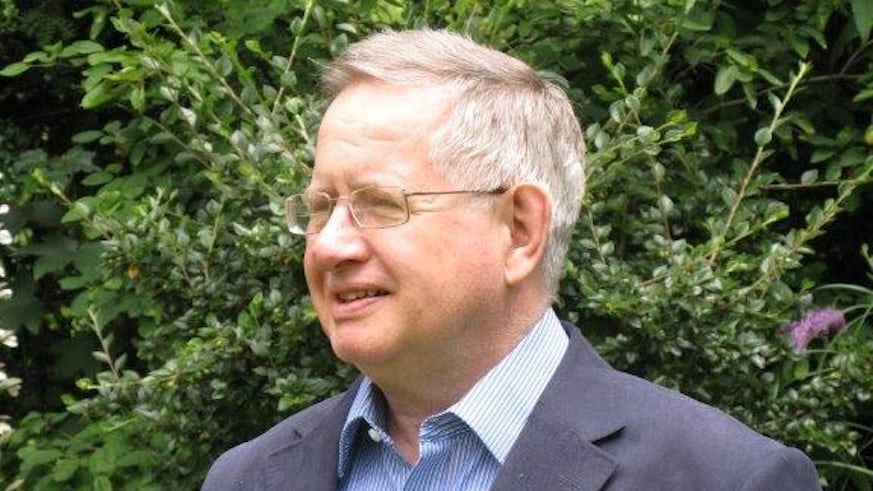Professor John Tyrrell (1942-2018)
9 October 2018

It is with sadness that the School of Music has learnt of the death of Professor John Tyrrell at the age of 76.
John was the leading authority on the composer Leoš Janáček, in the Czech as well as the Anglophone worlds. He and the conductor Sir Charles Mackerras, who worked together on definitive performing editions of Jenůfa and From the House of the Dead, jointly constituted the driving force behind the international resurgence of interest in Janáček’s operas, which now enjoy an unquestioned position in the international repertory. But, as an expert linguist and a shrewd commentator, he possessed a commanding knowledge of Czech music of all kinds. As executive editor of the expanded second edition of The New Grove Dictionary of Music and Musicians he played a leading role in the largest music lexicography project of the twentieth century.
John Tyrrell was born in what is now Harare, Zimbabwe, and took the BMus at the University of Cape Town. It was while still in Africa that he began to learn Czech, having gone with a friend to meet an expatriate who proceeded to teach them a few phrases of the language. On graduation from Cape Town he went to Oxford. There his unlikely doctoral supervisor was the composer Edmund Rubbra, whose interest in the thesis alas went little beyond correcting punctuation. Nonetheless, the resulting study of Janáček’s stylistic development as manifested in the revisions of the first five operas succeeded in setting the course of John’s future career.
After editorial positions at The Musical Times and on the first edition of The New Grove, John took up a lectureship at the University of Nottingham, where he remained for more than twenty years, becoming Reader in 1989 and Professor in 1996. During this time he produced six books, including Czech Opera (1988, published in Czech translation in 1991), his documentary study of Janáček’s Operas (1992) and in 1997 (in collaboration with Nigel Simeone and Alena Němcová) the definitive catalogue Janáček’s Works. He also assembled valuable source material on the women in Janáček’s life: the correspondence with Kamila Stösslovà, with whom the composer became infatuated in his final years, and the memoirs of his long-suffering wife, Zdeňka.
After his second spell at New Grove, initially on secondment from Nottingham, John took up a Professorial Research Fellowship at Cardiff University. He credited this position with allowing him to complete what he considered the culmination of his life’s work, the two-volume biography Janáček: Years of a Life (2006 and 2007). This was more than the largest work on its subject to date. It stood out immediately as one of the most systematic and richly detailed biographies of any musician published in the English language. Unlike Janáček, though, John was (to quote the subtitle of Volume 1) no ‘lonely blackbird’. Not only does the work draw upon and generously acknowledge the burgeoning scholarship that followed in the wake of his, it also includes chapters by others on such issues as the composer’s finances and his health. As if this formidable industry was not enough, other collaborations filled these years too. He worked with Karl Stapleton and Rupert Ridgewell respectively on two database projects: Prague Concert Life and the Concert Programmes Database (the latter based jointly at Cardiff and the Royal College of Music). While at Cardiff he also served as chair of the Music Libraries Trust (1999–2005).
John’s warm collegiality became evident to all when his research fellowship ended and he became once again a full-time professor. He embraced teaching enthusiastically, acted as informal mentor to younger colleagues, and took under his wing the new Postgraduate Forum. Consciously designed as an antidote to the loneliness of the long-distance doctorate (a mark of his own Oxford experience), the Forum survives to this day as a focal point for the postgraduate community in the School of Music.
Despite having said (in a typically quirky mixed metaphor) that he would ‘hang up his computer’ on completion of the biography, John did nothing of the kind. He continued with his critical edition of From the House of the Dead beyond the death in 2010 of Sir Charles Mackerras. (A memorial volume to Mackerras, incorporating essays and reminiscences and coedited with Nigel Simeone, was his final book.) He would often find himself transmitting his latest editorial findings on the opera in hurried response to fax or email queries from opera houses far and wide until, finally, in October 2017 the performing materials for the new edition were tested out in full for the first time by Welsh National Opera. Though John returned for those performances at Wales Millennium Centre, he was sadly not well enough to travel abroad for further productions. He was, however, able to oversee in its final stages the Czech translation of the first volume of his Janáček biography, due out at the end of 2018.
John received numerous honours throughout his career, including honorary doctorates from the two main institutions in Janáček’s home city of Brno, Masaryk University (2002) and the Janáček Academy of Performing Arts (2012). On the announcement of his death the Chief Executive of the Czech Philharmonic Orchestra, David Mareček, remarked that John ‘made himself a living part of Czech culture’. On a more modest scale, former students and colleagues now dotted around the world will echo that sentiment, as he enriched every environment he inhabited.
John is survived by his partner, Jim Friedman.